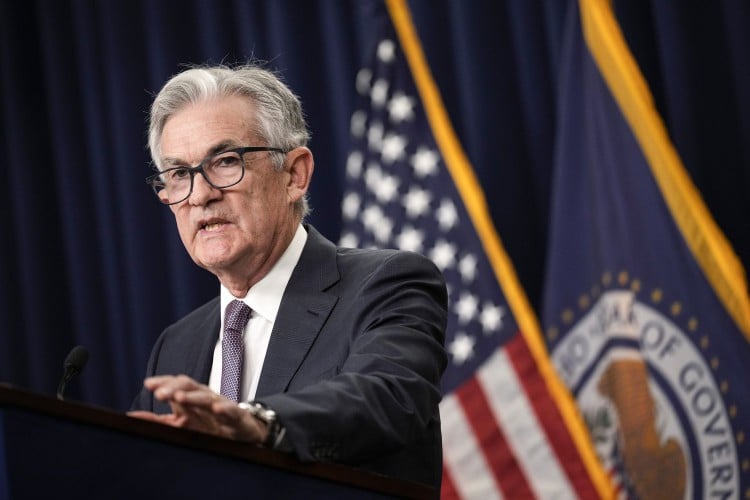Fed Squeezes Economy Harder With 4th Steep Rate Hike

Drew Angerer / Staff / Getty Images
If you thought interest rates on loans, credit cards, or mortgages were already high, hang on tight.
As widely anticipated, the Federal Reserve once again raised its benchmark interest rate 0.75 percentage points (75 basis points) on Wednesday, bringing it to a range of 3.75%-4% and said further increases were likely in the future. It is the fourth super-sized interest rate hike since June, and it brought this benchmark rate—known as the fed funds rate—to its highest since 2008.
The rate hike came out of the Fed’s seventh meeting this year, and was its latest move in its battle against inflation. The hike will raise borrowing costs throughout the economy, leading to higher interest rates on credit cards, auto loans, business loans, and potentially mortgages, as well. On the bright side for consumers, we could see increases to interest rates on bank accounts and products, like high-yield savings accounts and certificates of deposits (CDs).
High interest rates are intended to discourage borrowing and spending, reducing demand for goods and services and allowing supply and demand to rebalance in hopes that the rampant consumer price increases we’ve seen this year will decelerate.
“Inflation remains elevated, reflecting supply and demand imbalances related to the pandemic, higher food and energy prices, and broader price pressures,” the Federal Open Market Committee said in a statement. “Russia's war against Ukraine is causing tremendous human and economic hardship. The war and related events are creating additional upward pressure on inflation and are weighing on global economic activity.”
Note
The federal funds rate heavily influences interest rates throughout the economy, including those on credit cards and loans, but it’s not the rate you get on those loans. Banks typically charge a set amount above their so-called prime rate. The prime rate moves in tandem with the fed funds rate, but it’s typically about 3 percentage points higher.
The economy has so far proved resistant to the Fed’s tough anti-inflation medicine. Economists widely predict the economy will fall into a recession as a result of the Fed’s campaign of rate hikes with business slowing and millions losing their jobs. However, consumers have yet to significantly cut back on shopping, and employers have continued to hire and hang on to employees.
While this means business is still booming and jobs are still relatively easy to come by, inflation has stayed stubbornly high, meaning the Fed will likely have to continue raising rates higher, causing more damage to the economy in the process.
The rate hikes have already had a seismic impact on the housing market, which has slowed down sharply because of mortgage interest rates climbing to their highest since 2001. The rate hikes have also bludgeoned stock and bond markets, causing headaches for investors and retirement savers.
Have a question, comment, or story to share? You can reach Diccon at [email protected].
